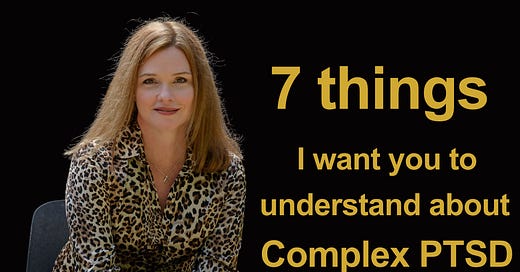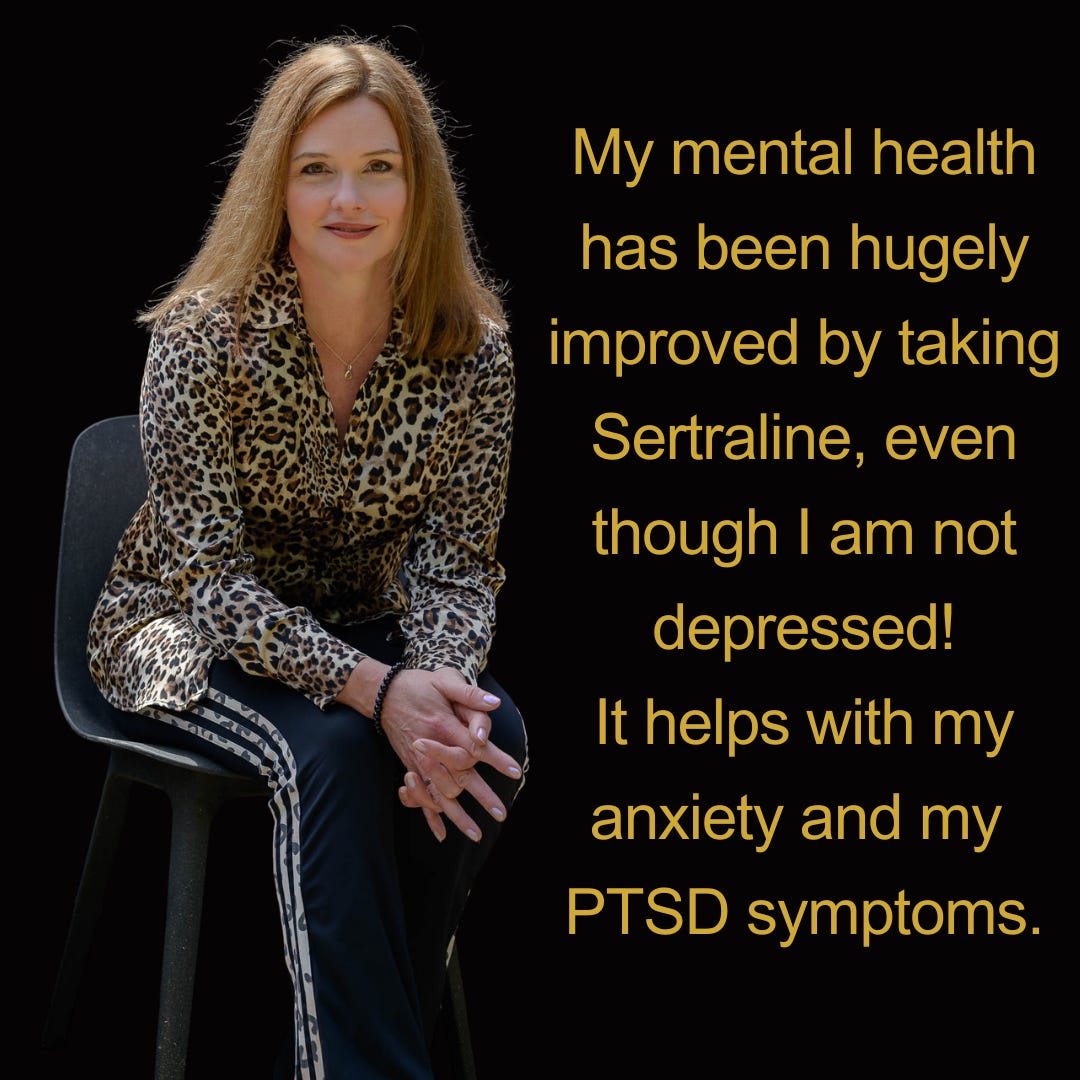Mental Health Awareness: Complex PTSD
7 things I want readers to understand about PTSD generally, and about my lived experience of complex PTSD.
Although I have complex PTSD, my official diagnosis says PTSD. It seems that complex PTSD is not recognised by the medical profession, and apparently it is not mentioned in the DSM-5. I am no expert on this subject, neither medically nor academically, but I am sharing lived experience of my own complex PTSD.
1) No, PTSD is not all about experiencing psychological triggers and flashbacks. We are not automatically fine when we avoid triggers, but that is often how PTSD is portrayed in the media and understood by those without lived experience.
Personally, I do not try hard to avoid the triggers; I brace myself for them when I can, ride them out, then practice self-care. Triggers are not the only time we are affected.
2) My PTSD was not caused by one or more major traumas such as my son’s suicide, my cycling accident, the jellyfish in my t-shirt incident, my missed miscarriages…
More it was the snowball effect of ‘all the trauma’, yes even trauma which may seem to those around us to be less significant (for example, getting taunted by high school bullies, going through a cancer scare, even encountering dismissive attitudes when advocating for my needs).
3) It can be hard to identify, because symptoms such as hypervigilance (perceiving threats everywhere) can be misdiagnosed as other conditions such as generalised anxiety disorder.
Many people with PTSD are neurodivergent, and we can mistakenly believe our trauma responses are part and parcel of our neurodevelopmental differences.
And where is the compassion for irrational reactions and behaviours resulting from PTSD?
To quote ‘The Joker’ (2019 movie), ‘The worst part of having a mental illness is people expect you to behave as if you don’t.
4) I do not recommend trying to get a diagnosis of complex PTSD. Personally, my diagnosis was a horrific, re-traumatising process, with so many gatekeepers, and was not worth it.
All I got out of mine was a note on my medical record, and a highly pathologising report which makes me sound like an absolute mess, like my whole life is a train wreck! It is not.
I have later gained access to my own full medical history, and recently read the diagnostic report, which recommended the report should not be shared with me in case it was re-traumatising, which seems ironic given how re-traumatising the diagnostic process was!
5) My mental health can be improved by taking Sertraline, which is a Selective Serotonin Re-uptake Inhibitor (SSRI). SSRIs are typically prescribed as anti-depressants, although they also help with anxiety and PTSD. I resisted taking SSRIs for years, because I am rarely depressed, I am an upbeat kind of person generally. However, Sertraline significantly helps me to cope with life, by reining in my hypervigilance, and reducing my volatile moods. However, I have weaned off Sertraline since completing titration for my ADHD medication (Elvanse).
6) Many of my neurodivergent friends present with symptoms of complex PTSD. Complex trauma and PTSD commonly co-occur with neurodevelopmental differences, yet it does not have to be! In a more understanding, accepting, and accommodating world, it would not be.
7) Personally, I find complex PTSD more disabling than being autistic and having ADHD. This is partly because it is harder to advocate for my needs resulting from PTSD, compared with something more tangible such as avoiding sensory overload from bright lights and competing noises.
The lack of awareness about how PTSD manifests is one of the disabling factors… yet we rarely see posts about PTSD during Mental Health Awareness Month!











